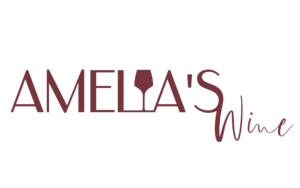Interview with Lonely Planet UK

I was honoured to be interviewed by the prodigious Lonely Planet for their last ever UK magazine edition. It meant so much to be able to share some of my favourite wine travels and adventures with them.
WHAT I’VE LEARNED…
AS A WINE EXPERT
Amelia Singer is a presenter on The Wine Show, UK ambassador for the California
Wine Institute and founder of amelias-wine.com
Wine is not just an alcoholic beverage. It is a product of its culture and tradition, a forum for
ideas and a lens through which to view the world. The glass of wine I have at home at the end of the day
is an essential daily connection, and a window into the outside world.
I’ve been ordering wines from local shops, bars and restaurants who need support.
I have started to do virtual wine tastings; getting people together online to educate and entertain them.
Wine is a great way to understand people and their traditions. When you travel to
a wine region, you not only get to appreciate some of that country’s top wine and food, but you often see
some of its most beautiful and less-visited aspects, too. Wine is still essentially agriculture, and
I love talking to locals about their craft and their love of the land.
My favourite wine region has to be the Rhône. You get some of the most complex, age-worthy
red wine styles, such as the famed Châteauneuf-du-Pape (Château de Beaucastel, for example) and the
well-priced and characterful Gigondas (try Domaine Grand Romane). I also enjoy the lifestyle,
particularly the scent of lavender, and radishes with scoops of cold butter and crunchy sea salt.
Wine tastings should be interactive. It could be a walk-around format, a pop-up wine supper
club, or an event where you mix wine up with literature, music, philosophy or art.
Millennials aren’t so caught up in the labels and traditions of their parents, and
technology such as the Vivino or Delectable apps make it far easier to find out about wine.
South Africa produces some of the most exciting wine in the world, especially whites.
Rocking Horse from Thorne and Daughters is a thrilling blend of five different grapes. The South
Africans also do wine tourism to perfection; most wineries offer tastings and something to eat, and
quite a few have accommodation so you can eat and sleep among the vines.
The chenin blanc grape is unappreciated by the market, so often great value. Whether it
is grown in the Loire or South Africa, it’s a fantastic alternative to the usual offerings. The unoaked,
pure fruit aspect makes sauvignon blanc fans happy, and the concentration and fleshy texture seduces
chardonnay lovers. One of my favourites from the Loire is Clau de Nell, and one of my top South African
ones is Kloof Street Old Vine Chenin Blanc.
You need to swirl before you taste to oxygenate the wine. This enables it to release
its flavour compounds. When you taste it, suck air into your mouth to oxygenate the wine again.
This really helps appreciate the flavours. Pretend you are sucking in oxygen through a straw.
No-one looks great tasting wine.
I was terrified when I met Aubert de Villaine, co-owner of Domaine de la Romanée-Conti,
where the world’s most expensive wine is produced. A bottle can range from £2,000 to easily £5,000,
depending on the vintage. I said I thought his four wines were like siblings, describing which was the
troubled middle child, the cocky youngest… Luckily he seemed to enjoy it; for him, his wines really are
his vinous children.

